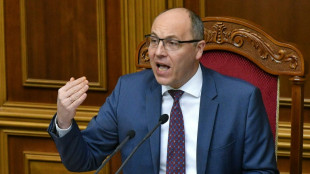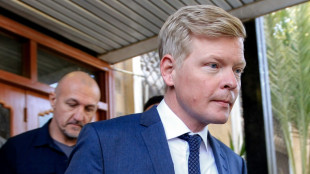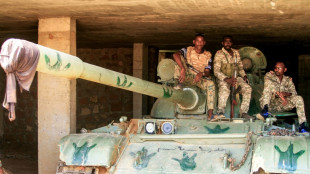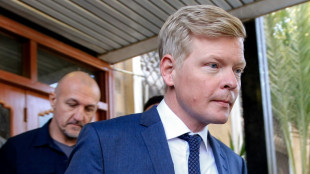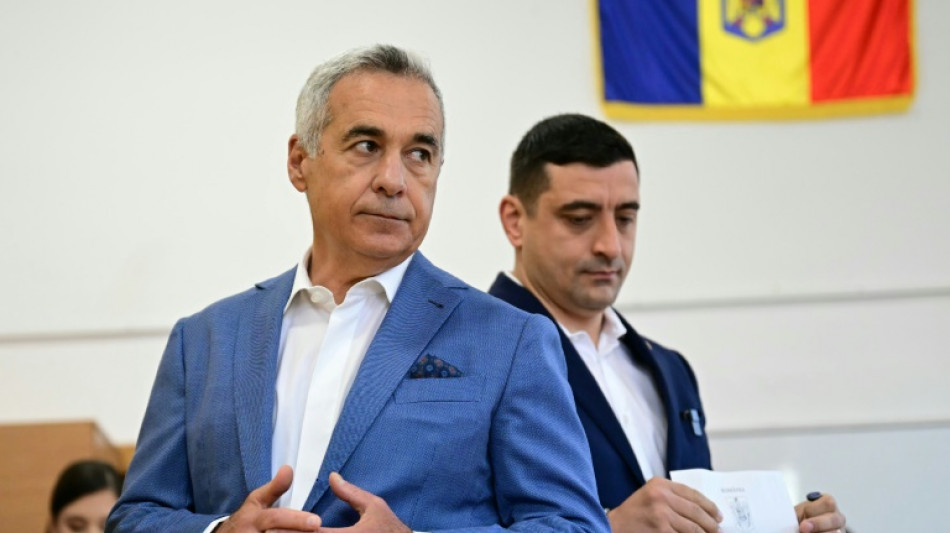
Romanians return to polls as far right hopes to win presidential rerun

Romanians returned to the polls on Sunday in a rerun of November's annulled presidential election that left the country in deep political turmoil, as a far-right candidate again is expected to win the first round.
The Constitutional Court cancelled last year's vote won by NATO critic Calin Georgescu, who has been barred from the rerun, with fellow far-right politician George Simion now looking like the favourite.
Georgescu was excluded from the rerun as authorities noted a massive TikTok campaign and issued claims of Russian interference, sparking sometimes violent protests.
He has been replaced by Simion, leader of the nationalist AUR party, who is one of 11 presidential hopefuls vying for the largely ceremonial but influential foreign policy post in Sunday's first round.
An avowed fan of Donald Trump, Simion is often seen wearing a cap with the US president's slogan "Make America Great Again". He says he hopes to become Romania's "MAGA president".
Campaigning on a promise to put Romania first, the 38-year-old frontrunner is expected to pick up at least some of Georgescu's votes.
"It's time to take our country back," said barred Georgescu after casting his ballot alongside Simion in Mogosoaia, on the outskirts of Bucharest.
"We are here with a single mission: to return to democracy... and bring justice to Romania," said Simion.
A small group gathered outside the polling station shouted "Calin, we love you", and "Georgescu for president".
- 'Dignity' pledge -
Polls opened at 7:00 am (0400 GMT) and will close at 9:00 pm, with exit polls expected shortly afterwards.
Simion has largely campaigned online, partly in a bid to woo Romania's influential overseas voters.
He describes himself as "more moderate" than Georgescu, but he shares his aversion to what he calls "Brussels' unelected bureaucrats".
Simion accuses EU officials of having meddled in Romania's elections and has vowed to restore his country's "dignity" within the European bloc.
While frequently denouncing Russia, he opposes sending military aid to Ukraine and wants Romania to reduce support for Ukrainian refugees.
His campaign has found favour with 67-year-old Stela Ivan.
After decades dominated by the same political parties since the end of Communism, she said she hoped "with all her heart" that a far-right president would bring "change" to Romania.
Silvia Tomescu, a 52-year-old nurse, said she hopes for a "better life, higher wages and a president" she can be "proud of" and who "will not side with Russia" as she voted in Bucharest.
- Under scrutiny -
There are four main candidates vying for a likely second round on May 18, including Simion.
Crin Antonescu, backed by Romania's governing pro-European coalition, has campaigned on a promise to offer stability.
Bucharest mayor Nicusor Dan has vowed to fight the "corrupt" and "arrogant" political elite.
And polling in fourth place is former Social Democrats prime minister Victor Ponta, who has been banking on a Trump-style "Romania First" campaign.
"The race has become very close," Remus Stefureac, director of polling company INSCOP Research, told AFP. "Each of the four could win the presidency," he added.
The large number of undecided voters could "completely change" the current ranking based on the polls, said Stefureac.
Following the shock annulment of last year's ballot -- a rare move in the EU -- the rerun will be under close scrutiny.
Thousands in Romania have protested in recent months against the cancellation, denouncing what they called a "coup".
Even the United States has weighed in on the annulment, with Vice President JD Vance condemning the decision.
To avoid a repeat of last year's turmoil, the authorities have stepped up preventive measures as well as cooperation with TikTok, saying they are committed to "fair and transparent" elections.
Going into Sunday's election, the far right alleged "multiple signs of fraud", while the government pointed to various disinformation campaigns it said were "new attempts at manipulation and interference by state actors".
S.Morin--SMC


 London
London

 Manchester
Manchester
 Glasgow
Glasgow
 Dublin
Dublin
 Belfast
Belfast
 Washington
Washington
 Denver
Denver
 Atlanta
Atlanta
 Dallas
Dallas
 Houston Texas
Houston Texas
 New Orleans
New Orleans
 El Paso
El Paso
 Phoenix
Phoenix
 Los Angeles
Los Angeles
